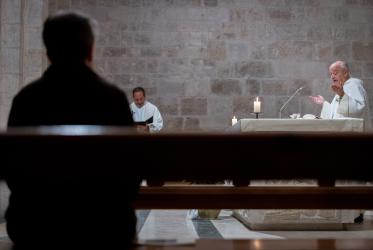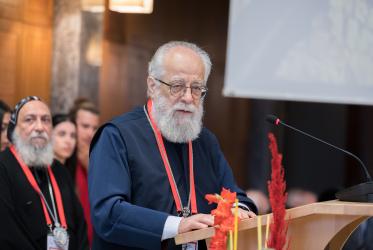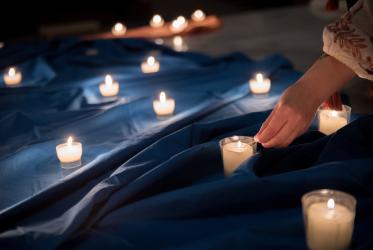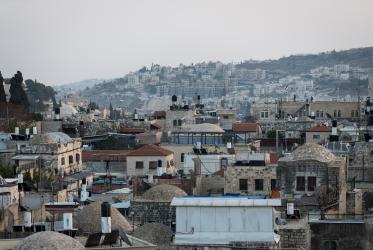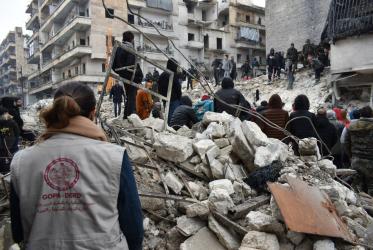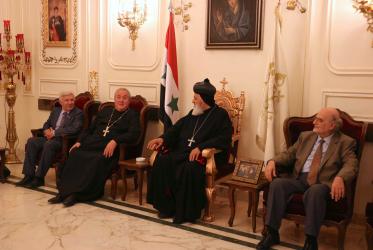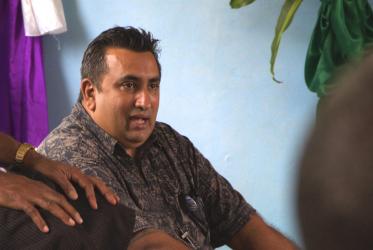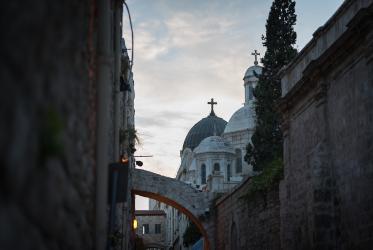Displaying 1 - 20 of 96
Women and children in Gaza bearing brunt of ongoing war
16 January 2024
Exhibition “Bethlehem Reborn – Palestine – The Wonders of the Nativity”
12 September - 05 October 2023
Ecumenical Center, Geneva, Switzerland
Palestinian delegation visits WCC
07 July 2023

